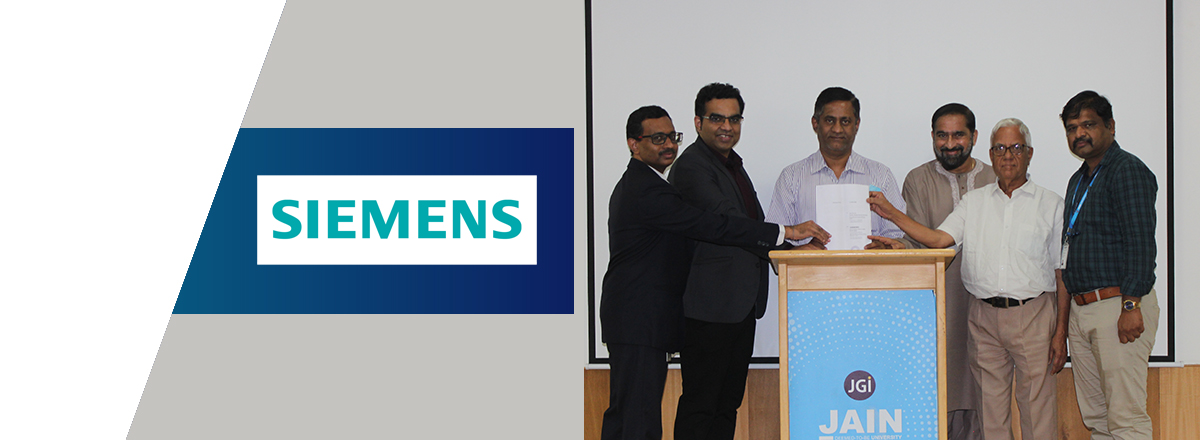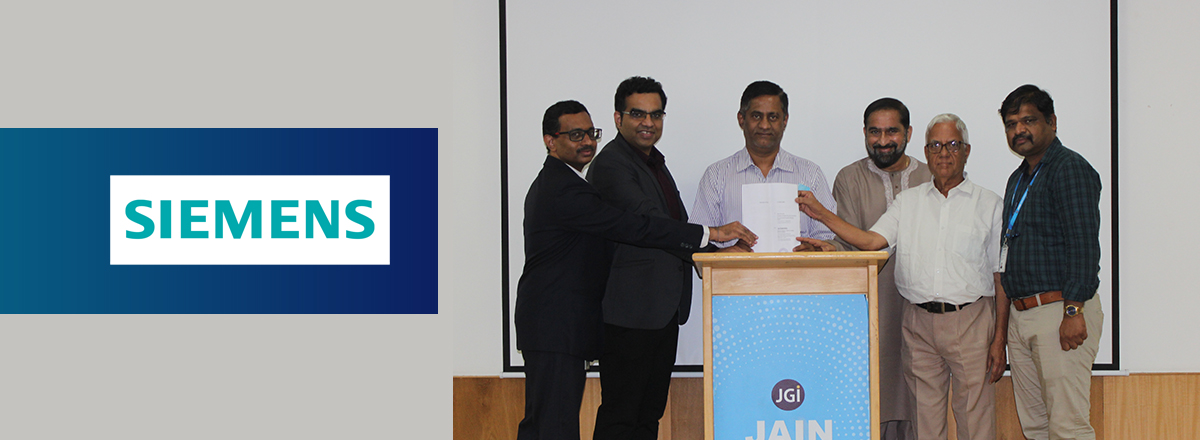About Department


About Department


The Department of Electrical and Electronics Engineering (EEE) was established in the year 2006 & offers B. Tech. and PhD programs. The department has faculty well-versed in academic and industrial fields, accompanied by experienced technical supporting staff. The BTech program has a highly flexible structure with a blend of industry & research-oriented courses. A student can pursue different specialised streams in the domains of design and development of electrical machines, smart grid, renewable energy, transmission and distribution, energy management, and electrical material science, offered by a reputed Electrical and Electronic Engineering University at JAIN (Deemed-to-be University).
Without Electrical Energy, Life is unimaginable. The exponential growth in the Industrial and agricultural sectors has tremendously increased the demand for Electrical Engineers. This is vividly reflected in the progress of the nation, too. Higher power generation capacity is the benchmark for the State's or Country's pride. This has enabled many programmes of EEE colleges in Bangalore.
The EEE Course train students in understanding and developing sustainable power generation by imparting fundamental knowledge on generation, transmission, control, distribution, storage, measurements and applications, besides enhancing the knowledge on basic electronics, semiconductor devices, CMOS, optoelectronics and sensors, including their multidisciplinary applications in most Electrical and Electronic Engineering University courses.
This will equip the students to compete globally as professional engineers and researchers in the field of electrical engineering, electronics engineering, communication, biomedical engineering, energy and environmental engineering, materials and nanotechnology.
The students will experience the ambience and general infrastructure of an institution with an A++ grade
The students will experience the availability of teachers, qualified only from reputed institutions across the country, with good technical skills and a parental approach towards the students.
The students can experience the innovative classroom teaching and the experiential learning followed in the EEE department by the subject handling faculty to make the students understand each and every concept of electrical engineering.
The students can experience the state-of-the-art infrastructure, in terms of laboratory, classrooms and other student-related facilities on par with the other institutions of excellence in this country.
Various skill development courses throughout the curriculum are available, with different levels of certification.
Industrial Internship and project-based training is provided to make the students industry-ready and is among the best Electrical and Electronics Engineering Colleges in Bangalore.
The students of B.Tech in Electrical and Electronics Engineering will be trained to provide acceptable solutions to complex electrical engineering problems in major core industries by application of modern and appropriate techniques that are taught as a part of an enriched curriculum through the National Educational Policy. Transfer of skill is guaranteed, hence job opportunity is guaranteed to all who enrolled in this program in our EEE colleges in Bangalore.
The students will be able to apply the knowledge to improve and control the conventional and non-conventional energy systems for specific applications, ethically and ecologically friendly.
The graduates will have the following designations in all related fields as mentioned
The graduates will also have the distinction of graduating from JAIN (Deemed-to-be University), which is ranked as the best Electrical and Electronics Engineering Colleges in Bangalore.
The EEE program at JAIN (Deemed-to-be University) is unique in its curriculum with a blend of core electrical courses, besides elective subjects of recent trends and techniques that enhance the students with good employability opportunities in various domains globally. In addition to the conventional EEE program, the students can also go for the following programs:
Other than the major programs, the students can also choose the following departmental electives as per their area of interest: